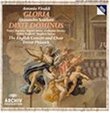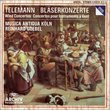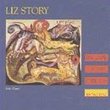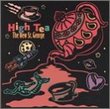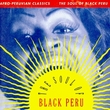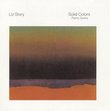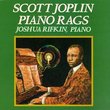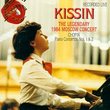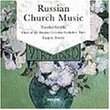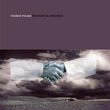| All Artists: David Munrow Title: Music of the Gothic Era Members Wishing: 1 Total Copies: 0 Label: Polygram Records Release Date: 10/25/1990 Genres: Special Interest, Pop, Classical Styles: Vocal Pop, Opera & Classical Vocal, Historical Periods, Early Music Number of Discs: 1 SwapaCD Credits: 1 UPC: 028941529220 |
Search - David Munrow :: Music of the Gothic Era
 | David Munrow Music of the Gothic Era Genres: Special Interest, Pop, Classical
|
CD DetailsSimilar CDs
Similarly Requested CDs
|
CD ReviewsExcellent, But Showing Its Age Leslie Richford | Selsingen, Lower Saxony | 02/11/2008 (4 out of 5 stars) "Music of the Gothic Era. Notre Dame Period (c. 1160 - 1250); Ars Antiqua (c. 1250 - 1320); Ars nova (c. 1320 - 1380). Performed by the Early Music Consort of London, directed by David Munrow. Recorded in the Chapel of Charter House, Godalming, Surrey (England) and in Conway Hall, London (England) in 1975. First published on LP in 1976. This selection published on CD in 1985 as Deutsche Grammophon Archiv 415 292-2. Total playing time: 60'31". (Since this time, DG have re-released the entire original recording on two CDs: see Music of the Gothic Era. After more than 30 years, this pioneering medieval recording is showing its age. Today, it is not considered historically correct to use instruments the way David Munrow did (here there are bells, fiddles, lute, bandora, psaltery, harp, organ, percussion, cornetts, recorder and shawms - played incidentally by such outstanding musicians as Christopher Hogwood and others who later joined the Academy of Ancient Music). And many today would be unwilling to have the majority of sung texts performed by one or two countertenors - as much as I respect James Bowman and Charles Brett, what you get to hear on this disc can occasionally fall into the "crowing" category so popular in the early years of the early music revival. And, finally, the Deutsche Grammophon engineering, although excellent as usual, leaves the instrumental accompaniments very much in the background in comparison with the voices which are superbly captured. Nevertheless, this is a fascinating piece of repertoire, one of the last recordings David Munrow made before his unfortunate suicide. The first twenty minutes or so are dedicated to organum by Leonin and Perotin ("the Great"), two of the first musicians at Paris's newly-built Notre Dame cathedral. Together with David Munrow's notes, these tracks offer unusually incisive insights into the development of medieval monophony and polyphony. There follow five anonymous motets from the Ars Antiqua period plus one by Petrus de Cruce and two by Adam de la Halle, both of whose music is, even today, very rarely heard. The Ars Nova section contains four anonymous motets plus two motets each by Philippe de Vitry (whose music has since been explored by Benjamin Bagby's Sequentia on Deutsche Harmonia Mundi) and Guillaume de Machau(l)t, whose musical production has been a mainstay of the early music movement. The CD closes with an instrumental version of a "hocket" by Machault played on cornetts and shawms. If you don't know what a "hocket" is, this will show you - the word means something like "hiccup" and indicates that the melody springs from one voice to another with short breaks (which, when sung, can indeed sound like hiccupping)." An early music Classic Leslie Richford | 01/28/2002 (5 out of 5 stars) "I've heard several of these pieces by others performers, and I can say that the performances here are the best. This CD begins with the great Leonin and Perotin, then goes on to shorter works, mostly vocal, all delightful and well-done. This is definitely a classic CD. It has yet to be improved upon. Munrow was a genius." You will never regret buying this recording dig-it-the-most | New York | 04/02/2004 (5 out of 5 stars) "For the last year and a half, I have been checking out a lot of Medieval and Renaissance polyphony, and this has turned out to be one of the recordings that I play constantly. The London Early Music Consort performs these pieces with great depth and a wide range of expression and drama. I sometimes wonder if the groups that originally performed these pieces some 800 years ago were as good as the London Early Music Consort. We will never know, but we are fortunate to have recordings of this group. The liner notes are interesting too; you get a perspective of some of the contentious social issues of the day.To those listeners who never heard much polyphony and yet have over-listened to all the other genres and need something different to expand your horizon, give this a look. It is among the best of its genre, and if you can get caught in it, you will be blown away."
|

 Track Listings (19) - Disc #1
Track Listings (19) - Disc #1